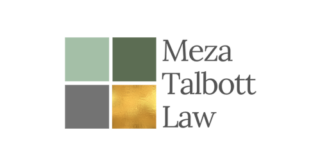In honor of Teacher Appreciation Week last week, we are taking this opportunity to thank everyone that teaches the future generation, whether in the classroom, at home, at church or any other child-centered space. You provide the foundational knowledge necessary to ensure the success of tomorrow’s leaders.
We are here to make sure you have the foundational estate planning documents to ensure your own successful future. Below are some basic questions and answers about estate planning and how estate planning, or the absence of an estate plan, may impact your life.
What is an estate?
What is an estate plan?
An estate plan is your personal set of “lesson plans” for use by your trusted decision-makers. The legal documents that dictate what will happen to you and your money and property at your death comprise the lesson plans. If you have a minor child, your estate plan can also enable you to nominate your child’s guardian. Some estate planning documents allow you to dictate what happens to you and your finances during any period when you cannot make your own decisions or if end-of-life decisions need to be made on your behalf.
Defined-benefit plans, also known as pension plans, calculate ahead of time and promise a specific payment amount when you retire. Defined contribution plans allow you and your employer (if the employer chooses) to contribute money to your individual account. The amount you receive from this type of account is based on the investment results. Regardless of the available options, you may need to do a little homework to make sure you understand the basics of your plan:
● What type of payments will you receive: a lump sum or installments?
● Do payments stop at your death?
● Does your spouse receive any money at your death?
● Are your children entitled to any payments at your death?
● Do you need to complete any paperwork to control what happens at your death?
● What happens if you die while you are still employed?
● What happens if you die before you retire but after you are no longer employed by the district?
Because the rules governing retirement plans can vary depending on the type of account, it is critical that you study and understand your plan’s rules and requirements.
Once you have done your homework regarding your retirement plan, you must look at the estate planning steps you have already taken. If you have already had some of the following documents prepared, you are on the right track. If you have not had any of these documents prepared, we are here to make sure you have a plan for any situation.
Revocable Living Trust
A revocable living trust (RLT) is a trust you create during your lifetime. You can change this trust at any time until you become incapacitated (unable to make your own decisions) or die. During your lifetime, you will either change the ownership of your accounts and property from yourself as an individual to yourself as the trustee of the trust (the person or entity who manages, invests, and hands out the money and property) or designate your trust as the beneficiary of your accounts and property (with some exceptions).
Last Will and Testament
Pour-Over Will
If you have an RLT as part of your estate planning, you will still have a will, but it will be called a pour-over will. This document will be used only if an account or piece of property was not transferred either to your trust during your lifetime or to your trust or another beneficiary at your death through a beneficiary designation. As with a last will and testament, a pour-over will names a personal representative or executor (most likely the same person you named as your substitute trustee) and a guardian for any minor children. The difference is that a pour-over will directs that all accounts or property subject to probate be transferred to your RLT. Although your loved ones will still have to go through probate, your money and property will end up in the trust, managed, and handed out according to the trust’s instructions.
Financial Power of Attorney
Medical Power of Attorney or Advanced Health Care Directive
In a Health Insurance Portability and Accountability Act (HIPAA) authorization form, you grant the named individuals the right to receive information about your medical condition (e.g., to get a status update on your condition or receive your test results). Although these individuals have the right to obtain the information, they do not have the authority to make decisions on your behalf. That power belongs to the decision-maker you have named in your medical power of attorney (or the person who was appointed by the court if you have no valid medical power of attorney). Providing information to your loved ones can help calm the anxieties and uncertainties that often arise during times of emergency. The HIPAA authorization can also help alleviate any tension between the person you name as the medical decision-maker and the rest of your loved ones and allow them to at least understand why those decisions were made.
Now that you are familiar with what estate planning is and the benefits it can provide for you and your loved ones, your next assignment is to call us. Together, we can dive deeper into your unique situation and design a plan that will protect you and guide your loved ones.
Meza Talbott Law
(909)377-8141
Claremont, California
This Blog/Website is made available by the lawyer or law firm publisher for educational purposes only as well as to give you general information and a general understanding of the law, not to provide specific legal advice. By using this blog site, you understand that there is no attorney-client relationship between you and the Blog/Web Site publisher. The Blog/Web Site should not be used as a substitute for competent legal advice from a licensed professional attorney in your state.



